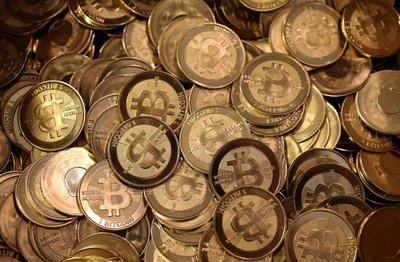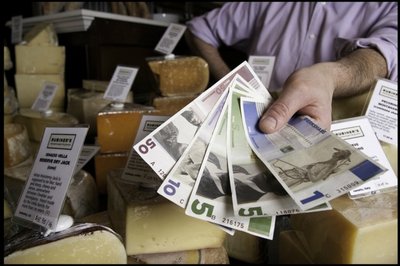Tech-savvy netizens and economic libertarians have adopted different forms of “cryptocurrency” or a type of digital currency that is not tied to any government and relies on algorithms to give the currency its value.

A pile of Bitcoin slugs sit in a box ready to be minted by Software engineer Mike Caldwell in his shop on April 26, 2013 in Sandy, Utah. (Photo by George Frey/Getty Images)
A pile of Bitcoin slugs sit in a box ready to be minted by software engineer Mike Caldwell in his shop on April 26, 2013 in Sandy, Utah. (Photo by George Frey/Getty Images)
At first, the unregulated and untraceable money was associated with illegal online black markets, but has since become a more mainstream form of currency, attracting investors and even
members of Congress.
Nine different cryptocurrencies currently exist on the Internet and cater to different audiences. Bitcoin became the first traded cryptocurrency in 2009, and has since become a favorite among libertarian techies skeptical of government-issued money and global criminals who like the anonymity it offers.
Dogecoin, another popular currency with a more light-hearted reputation, was created by Billy Markus, a programmer from Portland, Oregon, with the intention of reaching a broader demographic than Bitcoin.
The newest cryptocurrency to emerge is Auroracoin, which is only available in Iceland, and is part of a new generation of digital currencies that are geographically limited. In March, the developer of Auroracoin made $125 million worth of coins available to Iceland’s 330,000 citizens in what was called an airdrop. This works out to roughly $400 per person
According to The Verge, “Auroracoin was launched by a pseudonymous person or persons using the name Baldur Friggjar Óðinsson [a reference to Norse gods]. The goal is to decentralize power and revive Iceland's local economy, given that the kroner has fallen dramatically in value in recent years.”
Iceland was particularly hard hit by the 2008 financial crisis, largely because the country is
an investment banking hub
that is known for financial risk-taking.

Local currency hopes to spur businesses in western Massachusetts
Other communities around the world have also embraced cryptocurrencies as a way to stimulate the local economy, including Scotland (
Scotcoin
), Greece (
Greececoin
) and the Traditional Lakota Nation (
MazaCoin
).


RELATED RESOURCE
Local currency hopes to spur businesses in Massachusetts
In Berkshire County, Mass., community businesses and citizens are exchanging a new local currency as a way to support the local economy.

